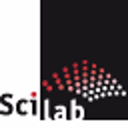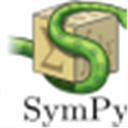Unlocking New Possibilities: Top OpenAxiom Alternatives for Advanced Computation
OpenAxiom, a powerful open-source platform for symbolic, algebraic, and numerical computations, has served as a cornerstone for researchers and practitioners in computational sciences. Forked from Axiom, it provides an interactive environment, an expressive programming language, and a vast array of mathematical libraries, aiming to be the go-to open-source computer algebra system. However, for various reasons – be it specific feature requirements, platform preferences, or a desire for commercial support – many users seek robust OpenAxiom alternatives. This guide explores the leading contenders that can fulfill diverse computational needs.
Top OpenAxiom Alternatives
Whether you're looking for open-source flexibility, commercial-grade power, or specialized functionality, there's a computational tool out there that can seamlessly integrate into your workflow. Let's dive into the best alternatives to OpenAxiom.

GNU Octave
GNU Octave is a free and open-source program for numerical computations, widely recognized for its high compatibility with MATLAB. It's an excellent OpenAxiom alternative for users primarily focused on numerical analysis and wanting a similar environment to MATLAB without the commercial cost. Octave is available across multiple platforms including Mac, Windows, Linux, and BSD, and offers features like ANOVA testing.

MATLAB
MATLAB is a commercial, enterprise-class computing environment and programming language, offering an incredibly robust platform for numerical computation. If you're seeking a comprehensive OpenAxiom alternative with extensive commercial support and a vast ecosystem of toolboxes, MATLAB is a top choice. It supports Mac, Windows, Linux, Web, Android, iPhone, and iPad, and includes features like Simulink, batch plotting, and an embedded debugger.

R (programming language)
R is a free and open-source software environment specifically designed for statistical computing and graphics. As a GNU project, it's highly regarded by statisticians and data scientists, making it a strong OpenAxiom alternative for those with a focus on data analysis. R is available on Mac, Windows, Linux, and BSD, and features include automatic data loading and data mining capabilities.

Sage
Sage is a free and open-source mathematics software system that combines the power of many existing open-source packages into a common Python-based interface. It’s an excellent OpenAxiom alternative for users who desire a unified environment for various mathematical domains, particularly symbolic computation. Sage runs on Mac, Windows, Linux, and Web platforms.

Mathematica
Mathematica is a definitive commercial technical computing system covering a vast array of disciplines, from machine learning and neural networks to data science and visualizations. If you're looking for a highly polished and comprehensively featured OpenAxiom alternative with a strong emphasis on symbolic computation, calculus solving, and graphical capabilities, Mathematica is a premium choice. It supports Mac, Windows, Linux, and Web platforms.

Scilab
Scilab is a free and open-source scientific software package for numerical computations, providing a powerful environment for engineering and scientific applications. It serves as a strong OpenAxiom alternative for users seeking a free, high-quality numerical computation tool. Scilab is available on Mac, Windows, and Linux.

Maxima
Maxima is a powerful free and open-source system for the manipulation of symbolic and numerical expressions, including differentiation, integration, Taylor series, and Laplace transforms. For those seeking a dedicated symbolic computation engine as an OpenAxiom alternative, Maxima offers extensive capabilities for algebra and more. It runs on Mac, Windows, and Linux.

wxMaxima
wxMaxima is a user-friendly, document-based interface for the Maxima computer algebra system. As a free and open-source application, it provides an intuitive way to interact with Maxima's powerful symbolic and numerical capabilities. If you appreciate Maxima's backend but desire a more graphical OpenAxiom alternative, wxMaxima is an excellent choice, available natively on Windows, X11, and Mac OS X, focusing on algebra.

Xcos
Xcos is a graphical editor within the Scilab ecosystem, designed for modeling hybrid dynamical systems. It's a free and open-source tool for designing, loading, saving, compiling, and simulating models. If your OpenAxiom usage heavily involved simulation and graphical modeling, Xcos, as part of the Scilab suite, offers a dedicated solution on Mac, Windows, and Linux.

SymPy
SymPy is a free and open-source Python library specifically designed for symbolic computation. Its goal is to become a full-featured computer algebra system while maintaining a simple codebase, making it an excellent programmable OpenAxiom alternative for Python users. SymPy is cross-platform (Mac, Windows, Linux) and offers features for algebra, education, equation editing, equation solving, and simulation within a Python environment.
Choosing the right computational software depends entirely on your specific needs, whether it's the robustness of commercial solutions like MATLAB and Mathematica, the flexibility of open-source powerhouses like GNU Octave and Sage, or specialized tools like R for statistics or SymPy for Python-integrated symbolic computation. We encourage you to explore these alternatives to find the perfect fit for your research, teaching, or engineering projects.